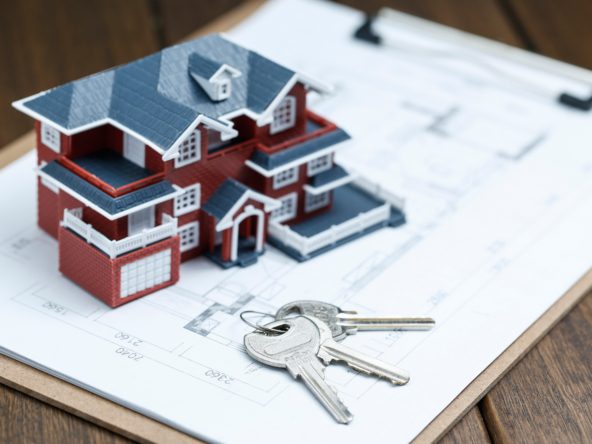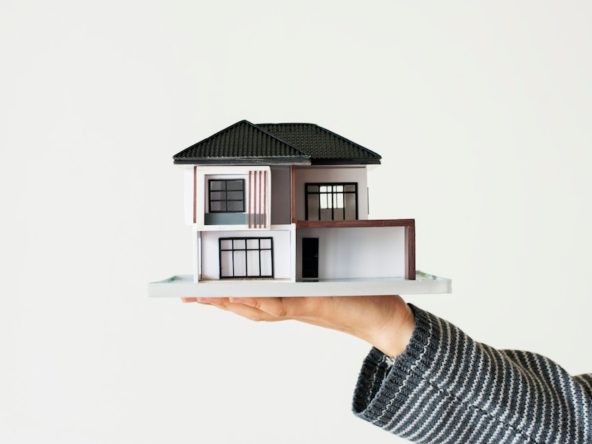Owning a dream home often comes with a trade-off between finances and customization. For those who enjoy the challenge of renovation, a fixer-upper can present a unique opportunity. However, before you invest in a fixer-upper, careful deliberation is required to determine whether the benefits outweigh the potential drawbacks.
Definition of a Fixer-Upper
A fixer-upper is a real estate property that requires significant repairs or updates before it can be considered livable or marketable. These properties are often sold at a discounted price so that buyers can invest money and time into renovating them.
Purpose of the Article
The purpose of this article is to provide a comprehensive evaluation of the pros and cons of buying a fixer-upper. By weighing these factors, readers will be able to make an informed decision on whether investing in a fixer-upper is worth their time, money, and effort.
Importance of Careful Deliberation before Investing in a Fixer-Upper
Investing in a fixer-upper is not a decision that should be taken lightly. There are many variables to consider, such as the age, location, and condition of the property. It is essential to weigh the pros and cons before deciding whether to invest in a fixer-upper.
Pros of Buying a Fixer-Upper
Opportunity for Cost Savings
Lower Purchase Price
One of the most significant benefits of buying a fixer-upper is the lower purchase price. These properties tend to be priced lower than other homes in the same area. The lower purchase price can help buyers save money and should be factored into any financial calculations.
Ability to Customize Renovations to Budget
Buying a fixer-upper provides an opportunity to customize renovations to fit within a specific budget. Buyers can choose to prioritize certain projects, such as updating the kitchen or renovating the bathroom, based on their budget.
Potential for Increased Home Value and ROI
By renovating a fixer-upper, homeowners have the opportunity to increase the home’s value and their return on investment (ROI). With careful planning and execution, the value of a fixer-upper can increase exponentially.
Flexible Design Options
Personal Touch
Buying a fixer-upper allows homeowners to put their personal touch on the property by choosing design elements that fit their personal style and taste. This can lead to a sense of fulfillment and pride in the final result.
Unique Home Features
Fixer-uppers can offer unique opportunities for homeowners to create one-of-a-kind features that can’t be found on traditional homes in the same area.
Versatility in Design Choices
Buying a fixer-upper allows homeowners to tailor the design to their specific needs and preferences. This versatility ensures that the home is perfect for their lifestyle.
Skill Acquisition and Personal Development
Hands-On Experience
Buying a fixer-upper provides homeowners with valuable hands-on experience in renovation, construction, and home improvement. This can help build skills and knowledge in these areas.
Opportunity to Learn New Skills
Homeowners may learn new skills during the renovation process. These skills can be used in other renovation projects or in other areas of their lives.
Sense of Accomplishment and Pride
Completing a fixer-upper renovation project provides a great sense of accomplishment and pride that comes with knowing what was accomplished with one’s own hands.
Adaptable to Shifting Lifestyle Needs
Accommodating Changing Family Dynamics and Living Needs
A fixer-upper provides homeowners with the opportunity to create homes that are tailored to their individual living needs. These homes can be adapted to meet the changing needs of a family over time.
Flexibility in Creating Living Spaces
Creating flexible living spaces in a fixer-upper allows homeowners to accommodate their specific needs and allows for easy transitioning.
Possibility for Rental Income
Increased Rental Potential
By renovating a fixer-upper, homeowners can create appealing rental properties that may bring in more rental income than a traditional house.
Additional Income Stream
Fixer-upper rentals create an additional income stream that can help offset the cost of the initial purchase and renovation costs.
Potential for ROI
With careful planning, a fixer-upper can provide homeowners with a return on investment that exceeds their expectations.
Cons of Buying a Fixer-Upper
Additional Costs
Hidden Costs
Fixer-uppers come with hidden costs that are not immediately apparent but add up quickly. These can include structural problems, plumbing issues, and electrical concerns.
Unforeseen Issues
Even with a thorough inspection, unforeseen issues can arise during the renovation process. These can end up costing thousands of dollars.
Financing the Renovations
Financing the renovation process can be complicated. Finding the right financing options can be a challenge and may require research and consultations with experts.
Time-Consuming and Stressful
Demanding Time and Attention
Renovating a fixer-upper requires a significant investment of time and attention. The renovation process can be time-consuming and may interfere with work and other obligations.
Managing Contractors and Schedules
Managing contractors and schedules can be difficult, especially when homeowners have multiple projects happening at the same time.
Disruptions to Daily Life
Living in a home that is undergoing renovations can be disruptive and stressful. It can be difficult to maintain a normal routine while the house is under construction.
High Level of Responsibility
Regulatory Compliance
Fixer-upper renovations need to comply with various regulations and building codes. Failing to comply can result in fines or other legal repercussions.
Safety Hazards
A fixer-upper may contain safety hazards, such as lead paint or asbestos insulation, that require special attention and care.
Liability and Insurance Considerations
Homeowners should carefully consider the liability and insurance implications of owning a fixer-upper. It is essential to have the proper insurance coverage to manage any risks associated with owning a fixer-upper.
Risk of Over-Renovating
Over-Investing in Renovations that Don’t Add Value
Homeowners may over-invest in renovations that don’t add value or are not appealing to potential buyers.
Over-Customized Design Choices
Over-customized designs can create problems if homeowners decide to sell later. Potential buyers may not share the same style or preferences.
Potential for Losing Money
Over-renovating can result in a loss of money when the home




